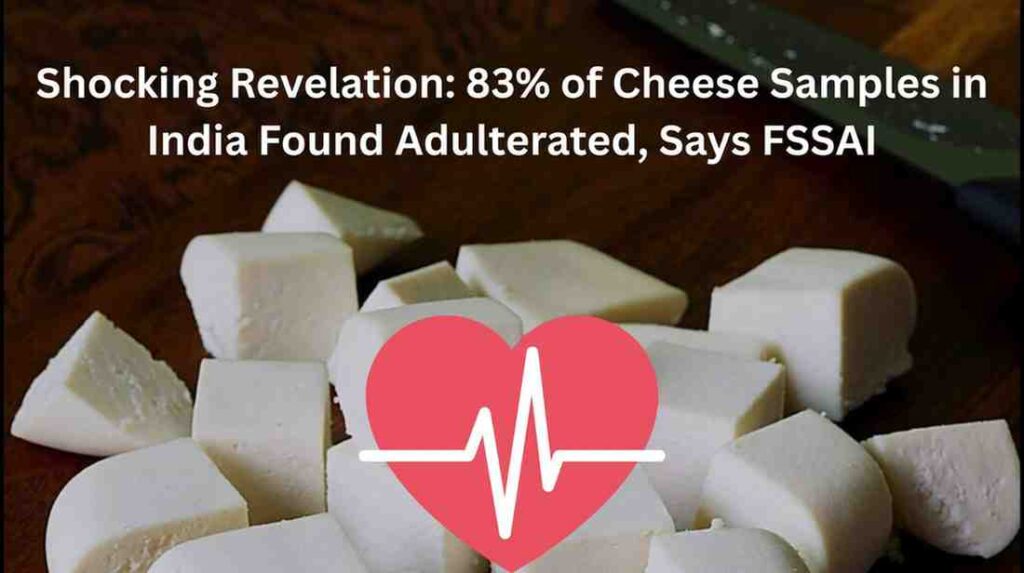Shocking Revelation: 83% of Cheese Samples in India Found Adulterated, Says FSSAI

Cheese — once considered a healthy and indulgent part of our meals — might not be as safe as we think. A recent nationwide investigation by the Food Safety and Standards Authority of India (FSSAI) has raised serious alarms about what’s really going into the cheese sold in Indian markets.
Shocking Test Results: 83% of Cheese Samples Failed Safety Checks
In an extensive survey covering multiple states, the FSSAI tested 122 samples of cheese from local shops and popular brands. The results were deeply concerning — nearly 83% of the samples failed to meet the required safety and quality standards.
Even more worrying, around 40% of the cheese samples were declared unsafe for human consumption, meaning they could cause real harm if consumed regularly.
What’s Inside Fake Cheese?
The investigation found that much of the “cheese” available in markets is either fake or heavily adulterated. Instead of pure dairy ingredients, samples contained cheap and harmful substitutes such as:
- Starch
- Synthetic milk
- Detergent and formalin (a toxic preservative)
- Palm oil and other non-edible fats
These substances are not just unpleasant — they can have serious health consequences. Regularly consuming adulterated cheese could lead to stomach disorders, kidney stones, liver damage, and long-term health issues that may go unnoticed until they become severe.
FSSAI’s Crackdown and Legal Actions
In response to these alarming findings, the FSSAI has initiated nationwide raids and surprise inspections targeting dairy producers, wholesalers, and local retailers. Thousands of kilograms of fake cheese were seized from different states.
Legal proceedings have begun against the offenders, but authorities admit that food adulteration remains a persistent threat, especially in unorganized local markets. The crackdown aims to remind manufacturers that compromising food safety won’t go unpunished.
How You Can Test Cheese at Home
Food experts suggest that consumers can perform a simple iodine test at home to detect starch — one of the most common adulterants in fake cheese. Here’s how:
- Take a small piece of cheese.
- Add a few drops of iodine solution on its surface.
- If the color turns blue or black, it means starch is present — a clear sign of adulteration.
This easy test can help you avoid consuming fake or unsafe products.
What Health Experts Recommend
Nutritionists and health specialists strongly advise consumers to buy cheese only from trusted and reputed brands or outlets. Be cautious of heavy discounts or unusually cheap prices — they’re often signs that something isn’t right.
If you suspect that a dairy product is fake or unsafe, avoid consuming it and report it to your local food safety department or FSSAI helpline. You can also get suspicious samples tested at an authorized food testing lab.
Stay Aware, Stay Healthy
In today’s fast-paced world, we often overlook where our food comes from — but as this investigation shows, that can be a costly mistake. A bit of awareness and caution can protect you and your family from serious health risks.
As the saying goes, “It’s better to spend a little extra on purity than to pay heavily for medical bills later.”
So next time you buy cheese, check the brand, look at the packaging, and if in doubt — test it out!



